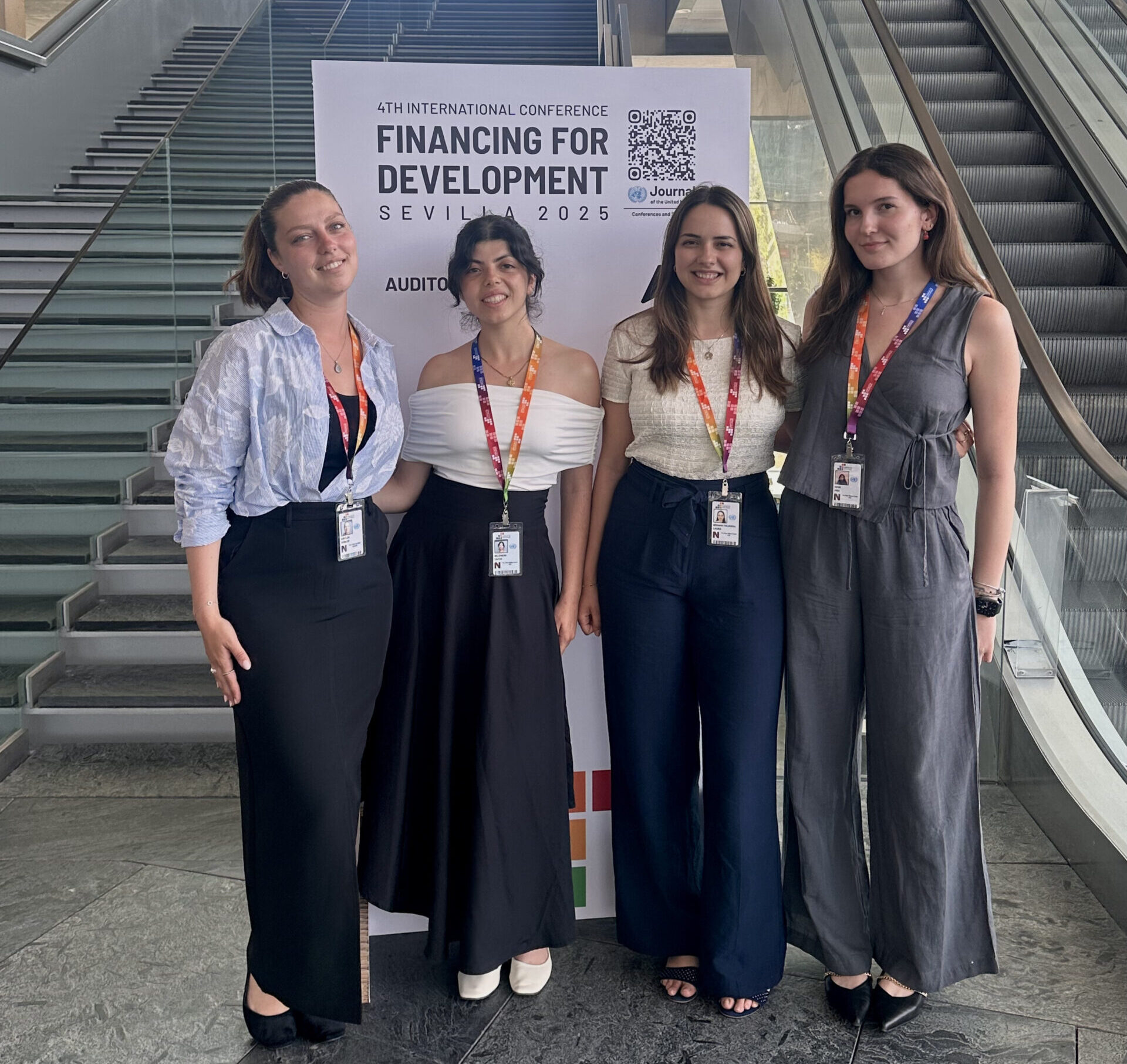by Ana Elena Opre
Last month, our delegation attended the 4th International UN Summit on Financing for Development (FFD4) in Seville, Spain, a decade after the 3rd summit in Addis Ababa laid the foundation for the Sustainable Development Goals (SDGs).
This year’s summit came at a critical moment. With only five years left to achieve the SDGs and global inequalities deepening, FFD4 was a symbolic and strategic moment to re-evaluate the financial systems that underpin global development. The event also announced the “Seville Commitment”, a renewed political will to transform the way development is financed. Yet, as many participants emphasized, commitments alone won’t bridge the gap between ambition and delivery.
One of the strongest messages throughout the summit was the need to mobilize private sector investment as a driving force behind sustainable development. Discussions focused not only on scaling capital but also on de-risking investments in vulnerable regions through public-private collaboration, blended finance mechanisms, and improved regulatory frameworks.
Equally important was the call to create markets, not prevent them, emphasizing transparency, innovation, and systemic reform over protectionist or short-term approaches. This requires bold thinking about global financial architecture, along with joint investment programs that can pool resources and align priorities across sectors and geographies.
Amid these financial and technical discussions, a deeper question echoed in many sessions and side events: Who gets to shape the transition? Too often, the inclusion of frontline communities, youth, and civil society is framed as symbolic or optional. In reality, their involvement is not a gesture, it’s a necessity. Without the leadership, local knowledge, and lived experience of these groups, there is no path to an equitable or effective green transition.
Moreover, the divide between policymakers, researchers, and the public remains a significant barrier. Bridging this gap will require not just better communication, but a transformation in how we define expertise and allocate decision-making power.
The Seville Commitment has reignited hope in the potential of international cooperation. But the road ahead demands more than symbolic declarations, it calls for structural change and courageous leadership. As we move forward, we must ensure that financing strategies center equity, accountability, and intergenerational responsibility. Because a financial system that works only for a few, works for no one.


